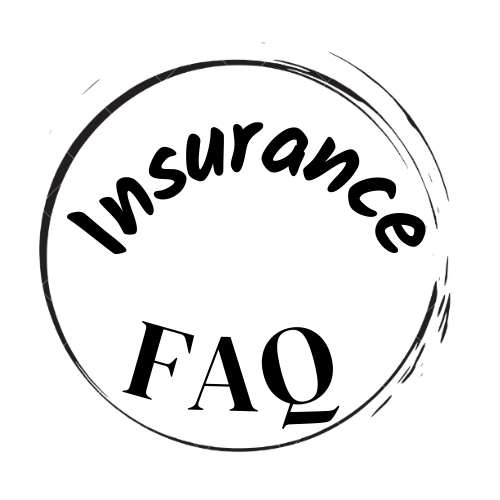
Catastrophes can crop up in your family, business, and any area of your life, thus the need for business insurance.
Situations like sudden death, business failure, medical emergency, and property damage, among others, can steal your peace, and with a lack of this peace, there is no productivity. Bearing the financial impact of such circumstances can burn a hole in your pockets. You may be forced to dip into the family savings or hard-earned money. And this is where Insurance comes in.
What is Business Insurance?
You can’t rush to get business insurance coverage without understanding the meaning of the business insurance itself. Businesses are protected from financial challenges by business insurance coverage that includes accidents that could happen on the job. The business environment comprises different departments, including employees and business properties.
There is various Insurance available for businesses that cover all the aspects of the enterprise. It includes protection against employee injury, property damage, and legal responsibility. Based on prospective risks, which change with the business environment, businesses need to evaluate their needs to obtain the best insurance policy.
What to do Before Obtaining a Business Insurance Coverage?
Small businesses are not exposed to financial loss when compared to developed companies. However, this does not mean they differ from large businesses in obtaining insurance coverage. Business owners should pay extra attention to and evaluation of their business insurance needs. You should consult with a trustworthy, knowledgeable, and professional insurance broker if you don’t feel you can accurately assess the risk involved and the need for insurance coverage. You can consult your state’s insurance body to get a list of authorized and reliable agents.
Business Insurance Types
There are several business insurances options for small business owners to think about, such as the following:
Insurance for Professional Liability
Professional liability insurance protects against negligence lawsuits brought about by errors or poor performance. There isn’t a professional liability insurance policy that fits everyone. Every industry has particular issues that need to be handled.
Real Estate Insurance
In the event of a storm, fire, or theft, property insurance covers the inventory, equipment, signage, and furniture. Mass-destruction incidents like earthquakes and floods are not covered. You might think of getting a different policy if you intend to open a business in a location that is vulnerable to these issues.
Personal property with a significant value is also an exemption; it is protected by purchasing a “rider” to the policy. When claiming the Insurance, the coverage pays to replace costs caused by the damage or give the actual worth of the damage caused.
Liability Insurance for Products
Product liability insurance is crucial if your company produces goods for sale. Any business can get named in a lawsuit for harm caused by products. Product liability insurance can save your company from such a situation.
Automobile Insurance
Any car utilized for business purposes needs to have complete Insurance. Businesses should, at the very least, carry third-party liability insurance, but comprehensive auto insurance also protects the vehicle in the event of an accident. Employees’ Insurance protects them in the event of an accident if they use their vehicles while working for the company. One significant exception is when someone, such as delivery employees, provides goods or services in exchange for payment.
Insurance Against Business Interruptions
Businesses that need a physical place to conduct business, such as retail outlets or manufacturing facilities, are well suited for business interruption (or continuation) policies. When an event disrupts the regular flow of business, business interruption insurance reimburses the company for its lost income.
Home-Based Enterprises
Individuals run businesses from the business premises. However, you will find several people who choose to run businesses from their homes. You might be thinking that this is the best idea for your venture, but there is something you should know before you take that path. Like commercial property insurance protects businesses, homeowner’s policies do not offer the policy to home-based businesses. Therefore, it would help if you asked about additional coverage for inventory and equipment if you run a home-based business.
Business Continuity
Insurance is essential for your business, but it is not enough to ensure continuity in your company. What if a key employee is lost? I want to talk briefly about the business continuity program. Since Insurance against loss is frequently insufficient, there is a need to stress on Business Continuity Program.
Why Business Continuity?
Isn’t a company’s continued success the goal of everything it does and every investment it makes? It is a question people intending to venture into business have. There are several reasons why you need a business continuity program.
- A good business continuity plan encourages the prompt making of appropriate decisions. Making poor or uninformed decisions in the initial hours or days after a disaster can be expensive. Business continuity planning offers consistent customer service at a minimally acceptable standard. This plan ensures that essential operations continue to run during a crisis. Each of these objectives has a large financial effect. If they are incorrect, additional financial loss will result.
- Planning for business continuity addresses issues that commercial Insurance does not. Most business insurance policies only cover loss or damage to your inventory and equipment. Usually, they don’t compensate for lost profits. The insured must provide proof of the company’s most recent net income to obtain business interruption coverage. The coverage, normally restricted at $30,000 per incident, may be far less than what the insurer needs to continue operations. In some circumstances, having a business continuity plan in place may require better terms from the insurer.
- Planning for business continuity improves your competitive advantage. A tried-and-true method for company continuity offers a considerable competitive edge. It demonstrates to future and current clients that you are a reliable supplier or service provider in their continuity planning. If you desire someone’s business, you must have a strategy for keeping them as customers.
- Planning for business continuity results in a deeper comprehension of the company, what it does, and what is most crucial. The business impact analysis is a crucial planning tool for any business continuity strategy. Examining the inter-dependencies between each organizational component is a step in the process. However, following a disaster, some elements are more important than others and will require more of your time and resources to be addressed.
- Regardless of size, business continuity planning is crucial to any organization’s governance and survival ability. No business, whether regulated or not, large or small, should operate without a business continuity plan. Smaller companies are more susceptible to failure after a tragedy. Large firms must show their customers, auditors, auditors, and regulators that they are committed to good governance and can resume normal operations swiftly.
When a disaster or emergency strikes, a well-designed insurance policy will assist you in reducing some of the financial damage, but you cannot count on it to fully protect you. These include harm to your organization’s reputation or long-term losses brought on by its failure to bounce back quickly or work efficiently. Customers and merchants aren’t as understanding as you may believe in today’s “me first” society. Customers will question your company’s lack of readiness. This is why you will need to work with Insurance and a business continuity plan.

